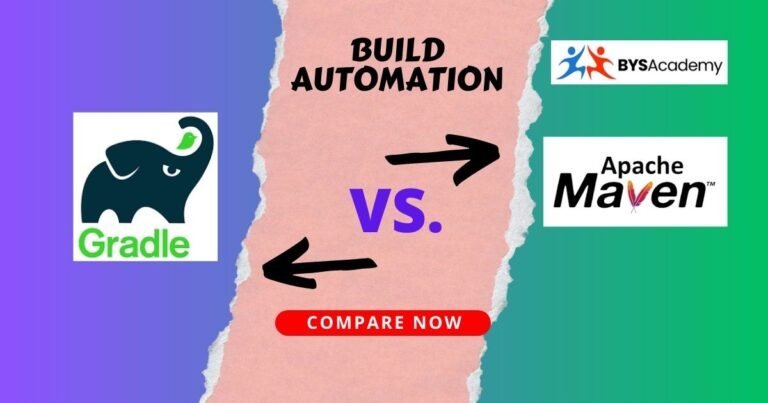In today’s fast-paced and rapidly changing technology landscape, there is an increasing demand for DevOps Engineers who can bridge the gap between software development and IT operations. The DevOps Engineer is a critical role that ensures the smooth and efficient deployment of software products and services. This role requires a combination of technical expertise, collaboration skills, and a deep understanding of the software development lifecycle.
DevOps Engineers are responsible for creating and implementing processes and tools that enable developers and operations teams to work together seamlessly, automate workflows, and continuously deliver high-quality software. In this article, we’ll take a closer look at the role of the DevOps Engineer, their responsibilities, and the skills and knowledge required to succeed in this exciting and in-demand field.
What is a DevOps Engineer?
- A DevOps Engineer is a professional who combines expertise in software development and IT operations to improve the speed and quality of software delivery.
- The DevOps Engineer works to automate and streamline the software delivery pipeline, from code development to deployment and maintenance.
What does a DevOps Engineer do?
- Designs, builds, and maintains automated systems for deploying, testing, and monitoring software applications.
- Works closely with development and operations teams to identify and address issues in the software delivery process.
- Implements and manages infrastructure as code (IaC) solutions such as Ansible, Puppet, or Chef.
- Collaborates with security and compliance teams to ensure that software is delivered securely and in compliance with regulatory requirements.
- Participates in on-call rotation to ensure that software systems are always available and performing optimally.
Skills required for a DevOps Engineer
- Strong understanding of software development methodologies such as Agile and Scrum.
- Experience with configuration management and automation tools such as Ansible, Puppet, or Chef.
- Knowledge of containerization and orchestration technologies such as Docker and Kubernetes.
- Familiarity with cloud platforms such as AWS, Azure, or Google Cloud Platform.
- Understanding of networking and security fundamentals.
- Excellent problem-solving and communication skills.
Why is DevOps important?
- DevOps enables organizations to deliver software faster and with greater reliability, enabling them to respond more quickly to changing business needs.
- By automating manual processes and streamlining workflows, DevOps helps reduce the risk of errors and improves efficiency.
- DevOps promotes collaboration and communication between development and operations teams, leading to a more cohesive and productive organization.
How to become a DevOps Engineer
To become a DevOps Engineer, a learner can follow the below steps:
- Learn the fundamentals of programming: Having a strong foundation in programming is crucial to becoming a DevOps Engineer. It is recommended to learn at least one programming language such as Python, Ruby, or Java.
- Gain knowledge of operating systems: Understanding how operating systems work is essential for a DevOps Engineer. Learn Linux, Windows, and UNIX operating systems.
- Learn version control: Version control is a critical part of DevOps. Learn Git and GitHub to manage code and collaborate with teams.
- Gain expertise in automation tools: A DevOps Engineer needs to have expertise in automation tools such as Jenkins, Ansible, Puppet, and Chef.
- Learn containerization tools: Containerization tools such as Docker and Kubernetes are crucial for managing applications in a DevOps environment.
- Develop soft skills: Soft skills such as communication, collaboration, and problem-solving are crucial for a DevOps Engineer to work effectively in a team.
- Get hands-on experience: Practice what you learn by working on projects, contributing to open-source projects, and participating in hackathons.
- Pursue DevOps certifications: Obtaining certifications such as AWS Certified DevOps Engineer, Certified Kubernetes Administrator, and Certified Jenkins Engineer can help to demonstrate your skills and knowledge to potential employers.
By following these steps and continuously learning and improving your skills, you can become a successful DevOps Engineer.
DevOps Engineer Salaries in India
According to recent data from various job portals and salary surveys, the average salary for a DevOps Engineer in India ranges from INR 6 lakhs per annum to INR 20 lakhs per annum, depending on factors such as location, years of experience, and company size.
DevOps Engineers in cities like Bangalore, Pune, and Hyderabad tend to earn higher salaries due to the high demand for skilled professionals in these locations. In addition, candidates with certifications and experience in cloud technologies like AWS, Azure, and Google Cloud tend to command higher salaries.
It’s worth noting that salaries for DevOps Engineers are on the rise, as more and more companies embrace DevOps practices to improve their software development and delivery processes. As a result, the role of DevOps Engineer is becoming more critical to business success, and demand for skilled professionals in this field is expected to continue to grow in the coming years.
Published on March 10, 2023
Last updated on December 29, 2024




